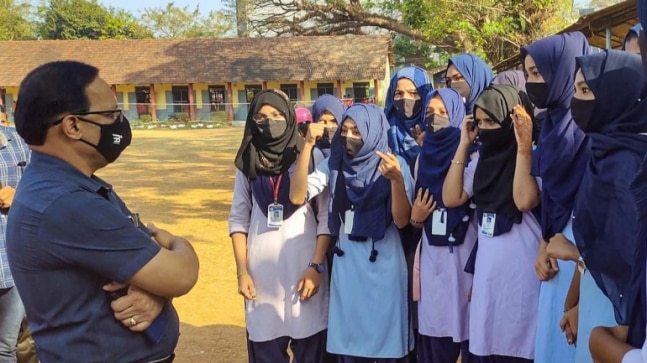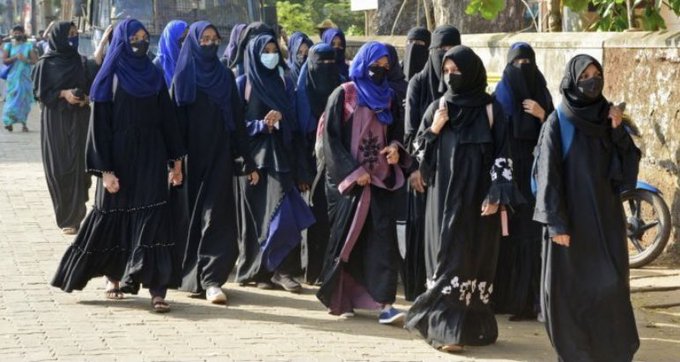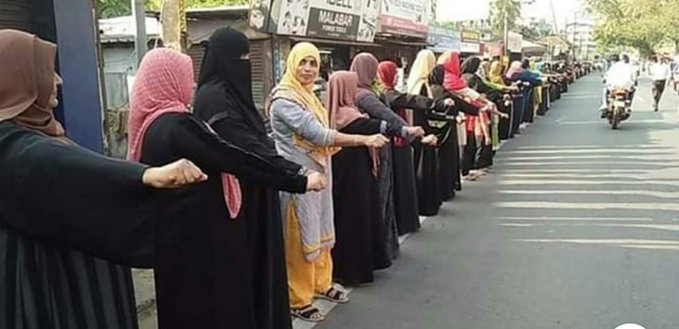Pushpa Telugu Movie Review, Rating
పుష్ప తెలుగు సినిమా రివ్యూ ,రేటింగ్
-
Did AR Rahman indirectly attack Ilayaraja..!?
-
Big responsibility fell on the shoulders of Kareena!!!
-
Has KKR owner Shah Rukh taken a break from films?
-
Fight between Rubina Dilaik's husband and ex-boyfriend?
-
When this superstar earning crores of rupees was considered?
-
All the actresses were wearing real and precious jewellery!!!
-
TN 12th Result 2024: Tiruppur tops in Plus 2 exam results..!!
-
How did he get the movie after being in jail?
-
This TV serpent used to get so much money?
-
Long distance relationship, wait of 12 years...
-
'I have broken up', Suhana Khan's post goes viral!
-
Rubina is not able to give time to her husband!
-
Is this the secret of Dharmaraju's victory..!?
-
When this director doubted Hrithik Roshan's ability
-
The trailer of Ashutosh Rana's 'Murder in Mahim' is tremendous!!!
-
Maidaan Vs BMCM BO Collection Day 23
-
'Ruslaan' fails at the box office-eighth day's earnings
-
When Shahrukh Khan showed the 'mirror of truth'
-
Before Shivangi Joshi, Kushal used to fall in love
-
Sanjay Dutt shed tears remembering mother Nargis
-
The Broken News Season 2: New twist
-
Anupamaa Spoiler: Shruti will insist on getting married...
-
'Roshan Sodhi'... himself conspired to go missing?
-
Army vehicle overturns in ditch in Kashmir, 1 soldier dead and 10 injured
-
Anushka Sharma was seen cheering for husband Virat Kohli and RCB!
-
Doctor fell in love with the hospital's cleaning staff,
-
Big blow to Paytm, COO and President Bhavesh Gupta resigned
-
This Ayurvedic herb will reduce the level of HBA1C and blood sugar in diabetes
-
Did Shreyas Talpade have a heart attack due to the covid vaccine?
-
Will KL Sharma be able to avenge Rahul Gandhi's defeat in Amethi?
-
Weather Alert: Temperatures cross 43 in Bihar, IMD issues alert from Bengal to Telangana
-
Sunidhi is upset with the misbehavior during the concert!
-
Third phase election campaign will end today, know where votes will be cast
-
When Atal Bihari Vajpayee contested Lok Sabha elections on 3 seats!
-
Kareena Kapoor Khan increased the pride of the country
-
CBSE Results 2024: Board announced, 10th-12th results will be released on this date
-
RCB vs GT: Got a gift for getting King Kohli out, bowler reacted like this
-
Chant this mantra while offering food to Laddu Gopal!
-
4 teams going to play-off round..!? STATS released.!!
-
Bobby Deol wept in The Great Indian Kapil Show, brother Sunny Deol's
-
IPL 2024: Faf du Plessis created history for RCB, even Virat
-
This is why Imtiaz Ali does not want to make 'Jab We Met 2'
-
Brazil Floods: Floods wreak havoc in Brazil, 60 dead, 70,000 missing
-
Businessman's son kidnapped and murdered in Greater Noida, body found in canal
-
AP: Shock for Chandrababu-Lokesh..!
-
Maulvi who plotted to kill Hindu leaders arrested, was getting weapons from Pakistan
-
Who will win in this ongoing battle in Yalamanchili..!?
-
'Pushpa Pushpa' song created history and collected so many million views
-
Will Jagan's trusted pawn win again as an MLA..!?
-
Sanjay Leela Bhansali came under criticism of Pakistani girl??
-
The war between three Key Leaders..!?
-
Karan Johar did not expect this from the people of the industry?!
-
Will Narendra Varma defeat Raghupathi in Bapatla..!?
-
Can Speech Therapy improve academic performance in children with Autism?
-
How do you measure progress in a child undergoing Speech Therapy for Autism?
-
AP: Senior IPS officer Shankhabrata Bagchi as in-charge DGP...!?
-
Will my child need to end Speech Therapy at a certain age?
-
How long after starting Speech Therapy can we expect to see changes in our child with Autism?
-
Does Speech Therapy focus only on spoken languages?
-
Can my child continue to go to school during Speech Therapy?
-
What activities are involved in a typical Speech Therapy session for a child with Autism at Pinnacle Blooms Network?
-
Can a special education teacher provide Speech Therapy for children with Autism?
-
Can Depression in children with Autism be reduced with the help of Speech Therapy?
-
How can Speech Therapy help with Hyperlexia in children with Autism?
-
Can autism lead to speech delay?
-
Can speech therapy improve a child's ability to make friends?
-
What is the relationship between autism and speech disorders?
-
AP: Jagana who took people's property?
-
There is never a king in AP politics..!?
-
Unni Mukundan is also trapped in a s***** harassment case?!!
-
The difference between Chandrababu and Jagan is the same: Minister Roja
-
YSP should stop the terrorist government - Pawan's sensational comments!
-
Bantu Mudunuri Prasada Raju - Will he reverse that sentiment?
-
Cherukuvada Sriranganatharaju's Confidence on his victory..!?
-
Can Aditi Gajapathi Raju repeats King's history in Vizianagaram..!?
-
AP (CM): Land Titling Act Issue Woes
-
CM Jagan's unexpected shock to R Narayana Murthy - What actually happened?
-
Will they repeat the magic of Cherukuvada?
-
Allu Arjun’s Voice Is in Controversy!
-
One Actress Bears Most Blame for OTT disaster
-
Who Morphed Samantha's Photo?
-
Tamannaah Achieved What Rajini & Dhanush Couldn’t
-
Vizianagaram: Will the royal daughter uphold the history?
-
Rs.15000 for children studying in government schools - Will Chandrababu give clarity?
-
Harish Rao: Congress came and Schemes are gone..!
-
Will Subbaraju be able to hoist the flag at Mummidivaram?
-
Amit Shah ensured Chandrababu Naidu
-
Elamanchili (YCP): Is it difficult to win..?
-
Andhra Pradesh: War is one sided in Narasapuram
-
Samantha Enjoys Infrared Sauna Therapy - Know its Benefits
-
This is how Trisha celebrated her 41st Birthday
-
Vijay's Biggest FLOP movie to Re-Release on THIS special occasion
-
Congress's Amethi office attacked, cars vandalized - 'BJP goons' blamed
-
Not Miya Zaki, it's actually Miyazki - The Costliest variety of mangoes from Japan
-
Rahul Gandhi promises Rs 1.3 L yearly for Telangana women
-
Telangana Hyderabad - Areas concentrated with Urban Heat Islands
-
Telangana Hyderabad records 53.7% surge in electricity demand on May 3
-
Telangana - Egg prices in Hyderabad burn a hole in pocket
-
What is the relationship between autism and speech disorders?
-
How does Pinnacle Blooms Network ensure parents’ involvement in their child's therapy process?
-
Can Speech Therapy also deal with apraxia in children with Autism?
-
How do you accommodate different parenting techniques in your Speech Therapy sessions for children with Autism?
-
Is continuous Speech Therapy necessary, or can we take breaks in between?
-
Are there any side effects of Speech Therapy for kids with Autism?
-
How is affectionate behavior encouraged in children with Autism through Speech Therapy?
-
What can be done if my child is showing resistance towards Speech Therapy?
-
Can I book a free consultation for Speech Therapy services at Pinnacle Blooms Network?
-
Is there a specific curriculum followed in the Speech Therapy classes for children with Autism at Pinnacle Blooms Network?
-
Can Speech Therapy address sensory issues common in children with Autism?
-
What is the success rate of Speech Therapy in treating kids with Autism?
-
How does Speech Therapy play a role in Autism Treatment Therapy?
-
Do you provide AAC Therapy in your Autism Therapy centers?
-
Could Speech Therapy help my autistic child lead an independent life in the future?
-
How should I prepare my child for their first Speech Therapy session?
-
What is meant by behavioral therapy in treating Autism?
-
Can Speech Therapy help in managing the tantrums thrown by my autistic child?
-
Is there a possibility of my child with Autism communicating effectively after Speech Therapy?
-
Do you offer group counseling and support for parents of children undergoing Speech Therapy?
-
Are Speech Therapy sessions offered on weekends?
-
Are the Speech Therapists at Pinnacle Blooms Network experienced in working with children with Autism?
-
Can Speech therapy address social anxiety issues in children with Autism?
-
Can Speech Therapy have a positive impact on a child’s educational performance?
-
What is the role of caregivers and parents in a Speech Therapy program?
-
Can Speech Therapy sessions be conducted with AAC (Augmentative and Alternative Communication) tools?
-
Can Speech Therapy help improve the emotional resilience of a child with Autism?
-
What kind of progress should I expect from Speech Therapy?
-
Can Speech Therapy cure Autism?
-
How long does a Speech Therapy session usually last?
-
My child is resistant to participating in Speech Therapy sessions. What to do?
-
Who can reap the benefits from Speech Therapy besides children with Autism?
-
Is Speech Therapy for Autism accessible at all Pinnacle Blooms centers?
-
RED ALERT ! Pooja Hegde Oozes Oomph in Red Hot Tight Dress
-
Pooja Hegde Not Doing 'Adults Only' movie
-
Sharmila-Jagan: YSRCP leader who revealed the secret..!
-
Samantha Nak*d Photo Exposed by Mahesh Babu Fan !?!
-
Samantha Posted and Deleted her Nak*d Photo - Fact Check
-
Telangana - IMD Hyderabad issues yellow alert as four days of rainfall expected
-
Telangana Hyderabad - Expired stocks found during raid at famous bakery
-
Telangana Hyderabad - Ice cream parlour, restaurant raided and unhygienic conditions found
-
Telangana Hyderabad sizzles with Highest Recorded Temperature of the season
-
Hyderabad AP Employees Face Voting Dilemma
-
Trolls On KCR’s ‘TG Udyamam Aipoledhu’ Comment
-
Flop Queen's Political Comedy Circus!
-
Survey Reports - Nani, Roja, & Rambabu Losing !?!
-
Postal Ballot Voting: Govt Wantedly Creating Troubles!?!
-
Direct Attack on Jagan - A First by BJP
-
13.5 Lakh Crore Loans In Jagan’s Rule
-
Land Titling Act Turns As Game Changer!
-
Modi's Eenadu Interview - Danger Bells for CBN & PK
-
Why Not 175? To Struggling For Own Family Votes
-
Why Do KCR and Owaisi Support Jagan’s Victory?
-
Bottles Attack on Sai Dharam Tej in Pithapuram
-
Ambati Rambabu: A mind-boggling twist on son-in-law's words..!
-
AP: The survey concluded.. Leaders in Josh..!
-
Is Venkatesh Bhatt angry with Chef Thamu?
-
Virat Kohli bowed before Dinesh Karthik..!? Why?
-
Many people in the CSK Team have flu..!?
-
The reason for CSK's success is this master plan by Ruturaj..!?
-
Opportunity to become Agniveer in Indian Navy, apply from this date
-
These 9 signs are seen in the body before a heart attack, if you get treatment in time, your life will be saved
-
ISKCON India Chairman Gopal Krishna Goswami dies in Dehradun, will be buried in Vrindavan
-
'Congress is playing with fire by doing Hindu-Muslim', Rajnath Singh attacks Rahul Gandhi
-
ICC announced the Women's T20 World Cup schedule, India-Pakistan match on this day
-
Engine got separated from running train in Ludhiana, major accident averted
-
Ananya Panday and Aditya Roy Kapoor parted ways? Now this close person has confirmed it
-
Who is Sajid Jatt, who plotted the attack on the Air Force convoy, gave training to terrorists
-
Is CAA Anti-Muslim? Know the truth of this claim of Al-Jazeera
-
Wrestler Bajrang Punia suspended by NADA, this big reason came to light
-
Bihar B.Ed CET 2024: Quick Registration, Apply at biharcetbed-lnmu.in
-
Baba Barfani's first picture revealed, Amarnath Yatra will start from June 29
-
The Indian company that is copying Tesla!
-
Who owns the land? Discover Asia with Google Maps!
-
Gujarat Titans - RCB who showed up in Bengaluru - GT scored 147 runs!
-
layaraja's change after Bhavadarini's death! Yesterday father... today son..!
-
What the hell is this? The problem that erupted as soon as the CWC started.
-
It can be 106 degrees in this part of Chennai!
-
Rudraj Gaekwad enjoying nature with his wife!
-
Unannounced power cuts for 4 hours every day!
-
Lived-in for 9 years, marriage did not last even for two years!!!
-
Will Karan Johar evict son Yash from the property?
-
Govinda's niece Ragini Khanna left Hinduism
-
Tawaif mother had worked in films to pay off her debt..
-
Bollywood beauty regretted marrying father of four children
-
Kareena Kapoor to become the sister of 'Toxic' Yash!!!
-
This Punjabi beauty's entry confirmed in Bigg Boss
-
Joy Bhattacharya speaks on Shah Rukh Khan's 'Wankhede
-
Revelation related to a big director's wife!
-
Why did the video of the Bhojpuri actress failed?
-
Why did Nargis and Raj Kapoor's relationship break?
-
After theatres, Kareena, Tabu and Kriti's film will now hit OTT!!!
-
Raj Kapoor was devastated in the memory of Nargis
-
Shekhar Suman reacted like this on making Kangana?
-
Actress ran away from hotel without clothes after quarrel!
-
Malayalam actor's daughter Malavika got married
-
Family members of accused Anuj Thapan refused
-
How does the actor's wife react after seeing the romance
-
This actor has unique character in 'Heeramandi', Bhansali happy!!!
-
During IPL match, Jhanvi Kapoor remembered 'Mr Mahi'!!!
-
5 heroes who leave their family behind and go to Yercaud for the summer!
-
Heaven in red saree.. Shruti Haasan with mesmerizing eyes
Empowering 140+ Indians within and abroad with entertainment, infotainment, credible, independent, issue based journalism oriented latest updates on politics, movies.
India Herald Group of Publishers P LIMITED is MediaTech division of prestigious Kotii Group of Technological Ventures R&D P LIMITED, Which is core purposed to be empowering 760+ crore people across 230+ countries of this wonderful world.
India Herald Group of Publishers P LIMITED is New Generation Online Media Group, which brings wealthy knowledge of information from PRINT media and Candid yet Fluid presentation from electronic media together into digital media space for our users.
With the help of dedicated journalists team of about 450+ years experience; India Herald Group of Publishers Private LIMITED is the first and only true digital online publishing media groups to have such a dedicated team. Dream of empowering over 1300 million Indians across the world to stay connected with their mother land [from Web, Phone, Tablet and other Smart devices] multiplies India Herald Group of Publishers Private LIMITED team energy to bring the best into all our media initiatives such as https://www.indiaherald.com

 The phrase 'We the people of India' is losing its value recently by ditching religion into the Constitution. And, in Article 44 of the Constitution, it is stated that the Uniform Civil Code will be implemented. Simply put, the latest hijab controversy is fostering an environment conducive to the implementation of the Uniform Civil Code as soon as possible.
The phrase 'We the people of India' is losing its value recently by ditching religion into the Constitution. And, in Article 44 of the Constitution, it is stated that the Uniform Civil Code will be implemented. Simply put, the latest hijab controversy is fostering an environment conducive to the implementation of the Uniform Civil Code as soon as possible. The future appears to be bleak.Wearing a hijab in schools and colleges is now considered a constitutional right. Given this, it is safe to assume that, in the future, demand for other items will rise in accordance with islam and Sharia.
The future appears to be bleak.Wearing a hijab in schools and colleges is now considered a constitutional right. Given this, it is safe to assume that, in the future, demand for other items will rise in accordance with islam and Sharia. In response to the Sessions Court's decision to prohibit the Rath yatra in this case, the madras high court stated that the logic behind accepting Jammat, if accepted, no Muslim event can be held in Hindu-majority so called democratic India.
In response to the Sessions Court's decision to prohibit the Rath yatra in this case, the madras high court stated that the logic behind accepting Jammat, if accepted, no Muslim event can be held in Hindu-majority so called democratic India..jpg) Rather, this hostility has persisted since 2011. In other words, if such disputes are not resolved through the implementation of the Uniform Civil Code, they appear to be taking a frightening turn in the future.
Rather, this hostility has persisted since 2011. In other words, if such disputes are not resolved through the implementation of the Uniform Civil Code, they appear to be taking a frightening turn in the future.



